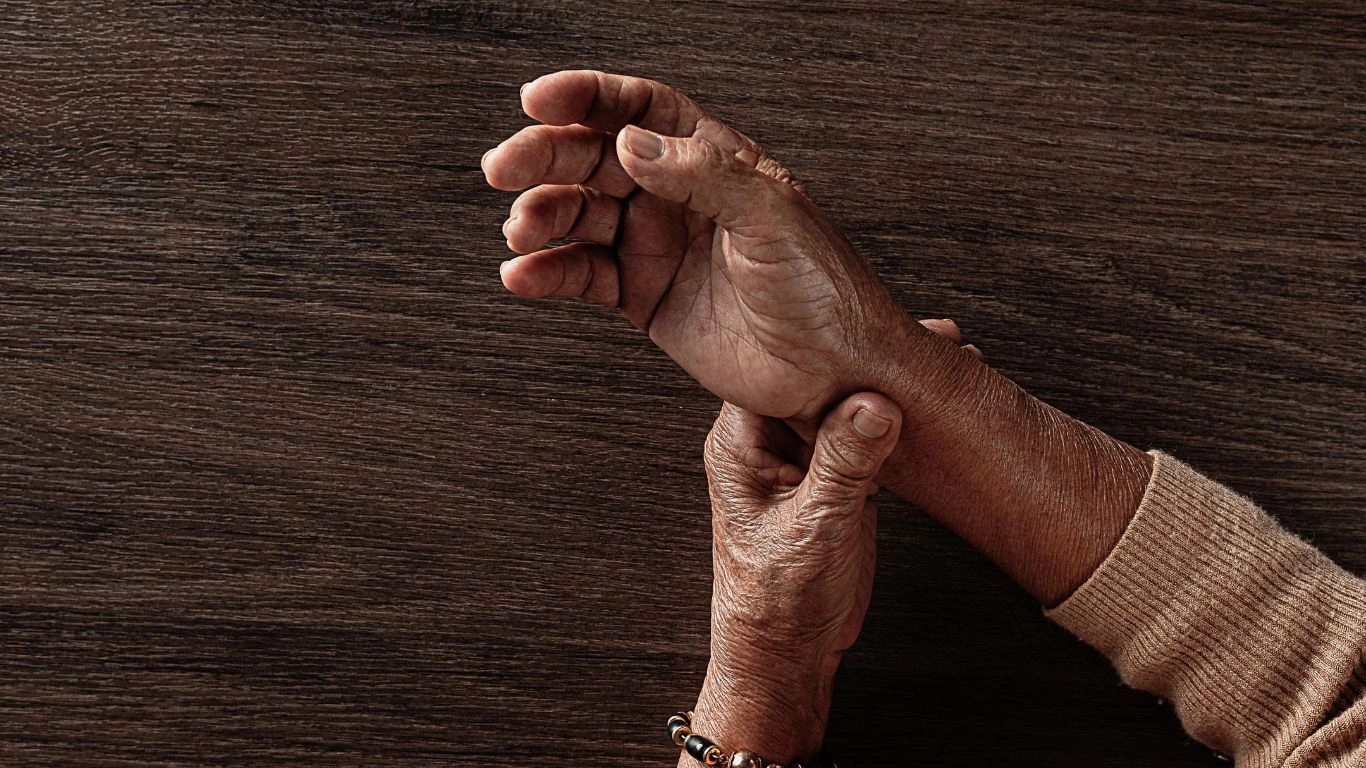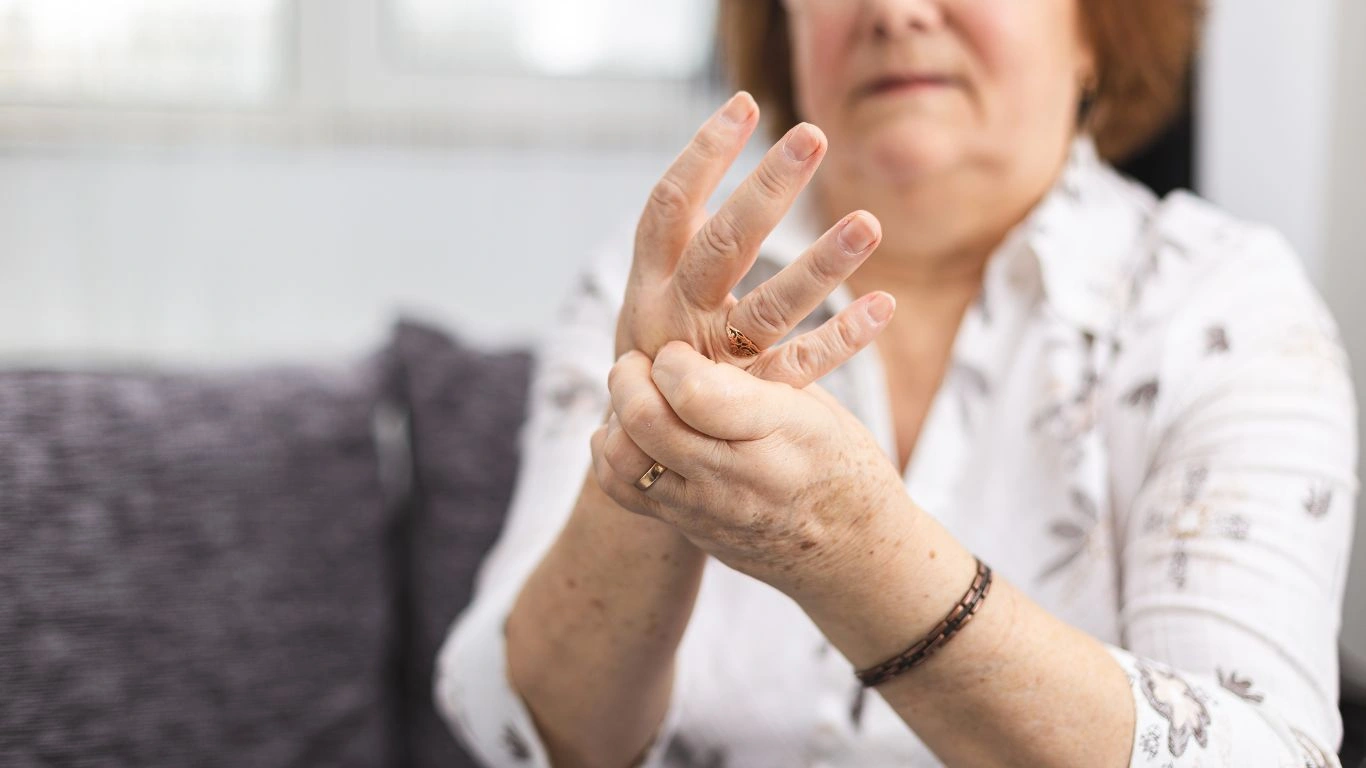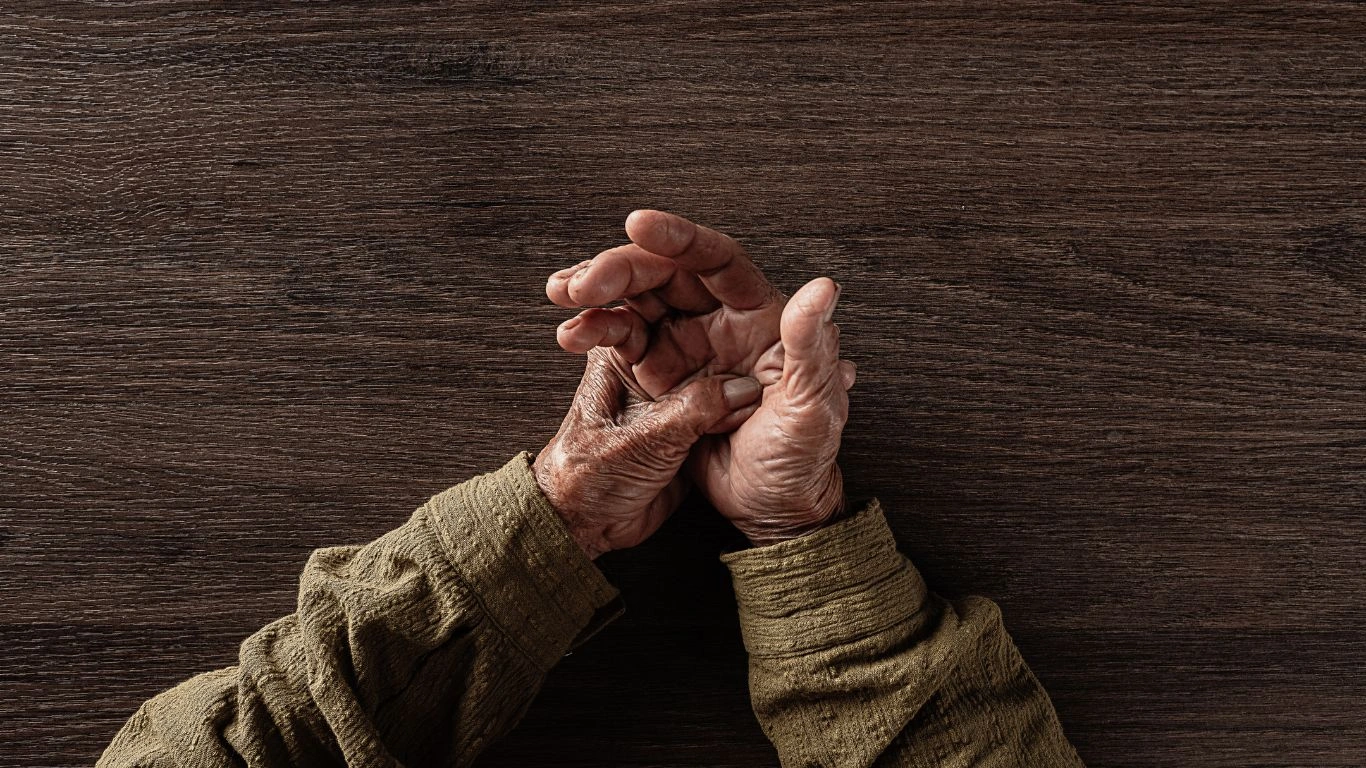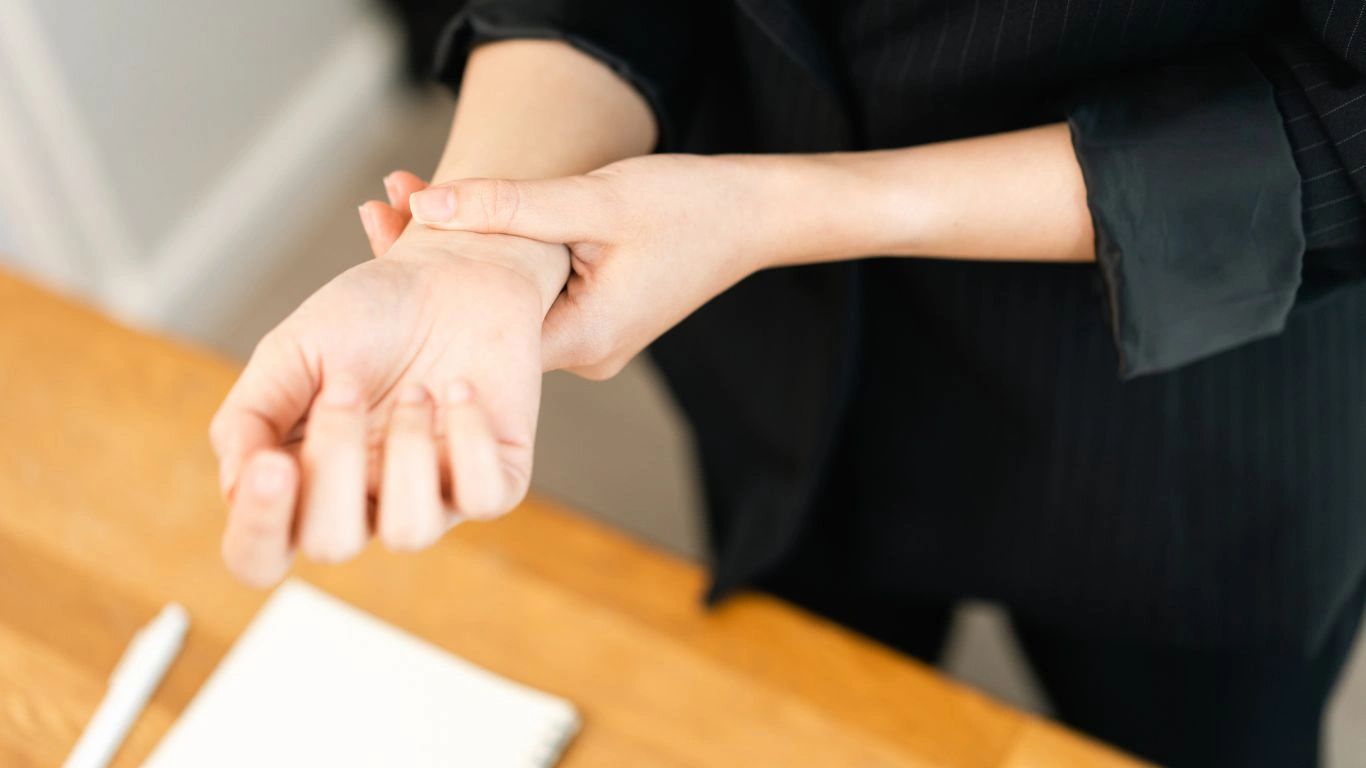How to Navigate Social Situations with Rheumatoid Arthritis Effectively
Living with rheumatoid arthritis (RA) can be challenging, and it brings a unique set of hurdles when it comes to social situations. Whether you’re meeting friends for a casual lunch or attending a family gathering, navigating these moments with RA requires a blend of communication, self-awareness, and sometimes, a bit of extra planning. As someone who’s worked with individuals living with RA, I’ve seen firsthand how social interactions can feel overwhelming or even isolating. But here’s the thing: you don’t have to give up your social life because of your diagnosis. It’s all about finding the right balance between being true to yourself, managing your condition, and setting healthy boundaries. So, if you’re wondering how to navigate social situations with rheumatoid arthritis, you’re in the right place! Let’s explore this together, with tips and personal insights that might help you manage those tricky moments with ease.
Understanding RA’s Impact on Social Interactions
Rheumatoid arthritis doesn’t just affect your joints—it can also impact your emotional and social well-being. When you’re living with chronic pain, fatigue, and sometimes flare-ups, these physical symptoms can understandably influence how you interact with others. You may find that simple activities, like shaking hands, going for a walk, or even sitting for a long period, become challenging. Additionally, the fatigue and emotional toll of managing RA can make socializing feel draining or even anxiety-inducing at times.
That’s why it’s important to understand how RA affects not just your body, but also your social life. By acknowledging these effects, you can develop strategies to manage your symptoms while still enjoying social engagements. It’s all about creating a balance—allowing yourself to participate, but also honoring your body’s limits when needed.
Common Social Challenges for Those with Rheumatoid Arthritis
While every person’s experience with rheumatoid arthritis is different, there are several common challenges that can arise in social situations. Let’s take a look at some of them:
- Physical limitations: Tasks like standing for long periods, walking, or carrying things can become difficult. At parties or social gatherings, this can make it hard to keep up with others.
- Fatigue: RA-related fatigue is a real struggle, and it can make you feel drained during or after social events, even if you’re enjoying yourself.
- Feelings of isolation: The unpredictability of RA flare-ups may lead to feelings of isolation, as you might cancel plans or avoid social situations out of fear of discomfort.
- Explaining your condition: Sometimes, it can be hard to know how much to share about your RA with others, especially in casual social settings.
Incorporating self-care and communication strategies into your social interactions can help ease these challenges. Let’s dive deeper into some practical tips for making socializing with RA a little easier.
Now that we’ve explored the challenges, let’s get to the good stuff—how to actually navigate those tricky social situations. It’s all about taking proactive steps, setting boundaries, and ensuring that you can still enjoy your time without compromising your health. Here are some practical tips based on my experience working with RA patients:
1. Plan Ahead for Social Events
Planning ahead can make a world of difference. If you’re attending an event, such as a wedding, birthday party, or even a dinner with friends, it’s important to plan for the physical demands it might place on your body. For example, if the event involves a lot of walking or standing, try to find out if there are seating areas or accommodations available. You could even call ahead and ask if there’s a place where you can take a break if you need to.
Being upfront with the host can also be helpful. Let them know that you may need to take breaks during the event or avoid certain activities. This way, you can enjoy the event without feeling like you’re putting yourself at risk.
2. Use Your Voice: Don’t Be Afraid to Set Boundaries
Setting boundaries is key. If you’re not feeling up for something or if an activity is too physically demanding, it’s okay to say no or suggest an alternative. This might feel uncomfortable at first, but trust me—being honest about your limitations will help reduce stress and ensure you don’t overdo it. No one knows your body better than you do, and you deserve to prioritize your well-being.
If someone asks why you’re sitting out or leaving early, it’s okay to share as much or as little as you want about your RA. You don’t need to give a detailed explanation unless you feel comfortable doing so. Saying something like, “I’m feeling a little tired today due to my RA, but I’d love to join in for a short while!” can be a simple yet effective way to communicate your needs.
3. Bring Comfort Items or Modifications
If you’re going somewhere that requires you to sit for long periods or walk around a lot, think about bringing along items that will make you more comfortable. This could include:
- A cushion for sitting or resting your joints.
- A walking stick or cane, if necessary, to help with stability.
- Compression gloves to help with hand pain.
In some cases, you may also want to adjust your outfit for comfort. Think about wearing clothes that are easy to move in, and shoes that don’t strain your joints. It might not be the most glamorous option, but feeling comfortable and pain-free will help you get the most out of the social event!

Managing Expectations in Social Situations
It’s easy to get caught up in the idea of “doing it all” or pushing yourself too hard to fit in with others. But one of the best ways to navigate social situations with rheumatoid arthritis is by managing expectations—both yours and others’. You might not always feel up to an all-day event, and that’s okay. Here are a few ways to adjust your expectations:
- Be realistic: Understand that some days will be better than others, and it’s okay to cancel or leave early if you need to.
- Limit your time: If you know an event will be long, give yourself permission to attend for a shorter time. This way, you can still be part of the occasion without overexerting yourself.
- Accept help when offered: If someone offers assistance, whether it’s getting you a drink or helping with a heavy bag, don’t hesitate to accept it!
Managing expectations is about balancing your desire to be social with your physical needs. This might require some self-compassion, but it’s essential for maintaining both your social life and your health.

Managing RA Flare-Ups in Social Situations
One of the trickiest things about navigating social situations with rheumatoid arthritis is dealing with flare-ups. These unpredictable bursts of pain and inflammation can strike when you least expect it, and suddenly, you’re faced with trying to manage your symptoms while still engaging with friends or family. From my experience working with people living with RA, flare-ups are often one of the biggest hurdles when it comes to socializing. You might find yourself in the middle of a fun gathering, only to feel your joints begin to swell or become incredibly painful.
But don’t worry, there are ways to handle this! The key is to be prepared and know what to do if a flare-up happens. Here are some strategies that I’ve found helpful:
1. Know Your Limits and Listen to Your Body
RA can be unpredictable, but one thing you can do is listen to your body. If you’re starting to feel the early signs of a flare-up—like increased stiffness, joint pain, or extreme fatigue—it’s okay to step away for a moment. Take a break in a quiet area, stretch, or even lie down for a bit. If you have medications or pain relievers, take them as prescribed before the pain gets overwhelming. Sometimes, just taking a moment to rest can prevent things from getting worse.
I always tell my patients that it’s essential to give yourself permission to listen to your body. It’s not about being rude or ruining the fun—it’s about knowing that your health comes first. No one else will understand your limits as well as you do, so be kind to yourself.
2. Keep Medications and Comfort Items Handy
If you’re someone who relies on medication to manage RA, it’s a good idea to keep your meds within reach during social events. Whether it’s a quick-acting pain reliever or a more long-term treatment, having it on hand means you don’t have to leave the event in a rush or struggle with the pain.
In addition to your medication, I recommend bringing along a few comfort items like:
- Heat packs: These can be great for soothing stiff joints, especially during colder months.
- Cold packs: If you prefer cold therapy for inflammation, having a cold pack nearby can help calm down flare-ups quickly.
- Compression gloves or sleeves: They can provide support and alleviate joint pain in your hands or wrists while you’re socializing.
Having these items available gives you peace of mind, knowing you can address any discomfort that arises without having to leave the social event completely.

Communicating About RA with Friends and Family
One of the most powerful tools for navigating social situations with RA is communication. But I know this can feel tricky. It’s not always easy to talk about your condition, especially if you’re worried that people might not understand, or you don’t want to be seen as constantly complaining. However, in my experience, being open and honest with your friends and family can actually bring a sense of relief and support.
1. Set Expectations Early
When you’re heading to a social event, especially one with family or friends who might not be familiar with the full extent of your condition, it’s helpful to set expectations early. This doesn’t mean you have to go into a detailed explanation of RA, but letting them know that you might need to sit down, take breaks, or leave early can help avoid any awkwardness later. For example, if you’re going to a family BBQ, you could say, “I’m really looking forward to hanging out, but I might need to sit down or rest during the event because of my RA.”
This simple communication can make a big difference. It can ease any tension you might feel about needing to step away or sit down during the gathering, and it helps your loved ones understand your limitations without feeling like they’re intruding.
2. Educate and Advocate for Yourself
Sometimes, friends and family might not fully understand what it’s like to live with RA. If you’re comfortable with it, taking a few moments to educate them about your condition can lead to more understanding. You don’t have to go into deep medical details, but sharing things like, “RA isn’t just occasional pain—it’s a daily challenge,” can go a long way in helping people grasp the reality of your condition.
I’ve often found that the more people know, the less likely they are to make assumptions or inadvertently cause you discomfort. Educating them helps remove the stigma and creates a more supportive atmosphere where you feel less like an outsider or burden.

Dealing with Social Anxiety and RA
Living with rheumatoid arthritis can sometimes come with a side effect: social anxiety. This is especially true if you’re concerned about your appearance, how others perceive you, or how you’ll manage your symptoms in social settings. Social anxiety can be tough to deal with, but it doesn’t have to stop you from participating in social situations.
1. Focus on the Positive Aspects
Whenever I talk to people with RA who feel anxious about socializing, I always encourage them to focus on the positive aspects of the event. Maybe it’s the chance to reconnect with old friends, enjoy a good meal, or take part in fun activities. By shifting your focus to the enjoyable parts of the experience, you can reduce the anxiety around the possibility of flare-ups or discomfort.
One of the best pieces of advice I’ve received from patients is to focus on the people and the moments rather than worrying about how you’re feeling physically. It’s about being present. And even if you have to take a moment to rest or excuse yourself, know that you’re still enjoying the experience as much as you can.
2. Practice Mindfulness Techniques
If you find yourself feeling anxious before or during a social event, mindfulness exercises can help ground you and reduce stress. Deep breathing, meditation, or even a short walk before the event can help clear your mind and calm your nerves. These simple techniques can be surprisingly effective in managing anxiety and allowing you to focus on the social experience rather than worrying about potential flare-ups.

Building a Support Network for Social Situations with RA
One of the most valuable things you can do when managing rheumatoid arthritis and navigating social situations is to build a strong support network. Having people who understand your condition, are empathetic to your challenges, and can offer practical help or emotional support makes a huge difference. Over the years, I’ve seen firsthand how people with RA thrive when they have a reliable network, whether that’s family, close friends, or even online communities.
Building a support network isn’t just about finding people who can help you physically—it’s also about creating a safe space where you can openly talk about your challenges without feeling judged. This network can help you feel less isolated and more empowered to participate in social situations. Let’s dive into how you can start building or strengthening your own support system.
1. Lean on Family and Close Friends
Your family and friends are the foundation of your support network. If you haven’t already, consider having an honest conversation with them about your rheumatoid arthritis, how it affects your daily life, and what they can do to help when you’re socializing. Trust me, most people are eager to help—they just may not know exactly how.
Start by explaining that while you want to be social, there may be moments when you need a little assistance or understanding. Maybe they can help by picking a venue with accessible seating or offering you a seat when you’re feeling fatigued. Being open and transparent helps them understand what you need and gives them the chance to be part of your journey in a meaningful way.
2. Don’t Forget About Virtual Support Groups
If you’re struggling to find local support or don’t feel like sharing with close friends or family, online communities can be a lifeline. There are numerous virtual support groups specifically for those with rheumatoid arthritis. These spaces allow you to connect with people who truly understand what you’re going through. The beauty of these communities is that they provide advice, empathy, and tips from people who are in the same boat.
Social media platforms, RA-focused forums, and Facebook groups can be wonderful places to exchange experiences and even find support in social situations. Plus, these online groups often have advice on how to navigate events or social gatherings when you’re living with RA.

Creating a Social Strategy That Works for You
Sometimes, managing social situations with RA isn’t just about coping with flare-ups or setting boundaries—it’s about creating a strategy that works for you. The strategy could include specific habits, rituals, or mindset shifts that help you manage social events with greater ease and confidence. Everyone with RA has different needs, so what works for one person might not work for another. The trick is to find what fits your lifestyle and makes you feel most comfortable. Here are a few tips on how to create that strategy:
1. Set Priorities and Know When to Say No
As I’ve mentioned earlier, it’s crucial to set boundaries. But it’s also important to know when to say “no” to certain social events. Overcommitting can lead to burnout, and it’s essential to recognize your limits. Not every event needs to be attended, and not every social gathering needs your presence. Sometimes, it’s okay to decline an invitation, especially if you’re feeling extra tired or you know the event will demand more energy than you’re able to give.
Over time, you’ll become better at knowing which events are worth attending and which ones aren’t. If you’re feeling unsure about whether or not to attend an event, ask yourself these questions:
- Will attending this event leave me feeling drained or exhausted?
- Can I go for a shorter period of time to avoid overdoing it?
- Is there a way to modify the event to suit my needs (e.g., finding seating, limiting walking, etc.)?
By setting priorities and saying no when needed, you’re protecting your health and ensuring that you can enjoy the social occasions you do attend.
2. Find Your Social Balance
It’s all about balance. You don’t have to quit socializing altogether because of RA. Instead, focus on finding a balance that works for you—one where you can be social without overexerting yourself. For some people, that might mean attending smaller gatherings or having more one-on-one get-togethers with friends rather than large parties.
Consider hosting smaller, more manageable events at home or opting for low-key outings like coffee dates or strolls in the park. These types of events are often less physically demanding and give you more control over your environment. Plus, they’re just as enjoyable! The goal is to create a social life that fits your lifestyle without sacrificing your health or well-being.

References
Here are a few useful resources that you may find helpful in navigating your RA journey:
- HealthUsias – RA Support and Resources
- Arthritis Foundation – RA Information and Tips
- American College of Rheumatology – RA Resources
Disclaimer
The information provided in this article is intended for educational purposes only and should not be considered as medical advice. Always consult with your healthcare provider regarding any health concerns or treatment options for rheumatoid arthritis or other medical conditions. Each individual’s experience with RA is unique, and the recommendations in this article may not be applicable to everyone. The author is not a licensed medical professional, and the information shared is based on personal experiences and general advice. Please reach out to a healthcare professional for personalized guidance and care.

Tarra Nugroho is a dedicated Nurse Practitioner with a strong foundation in family and preventive care. She brings both compassion and clinical expertise to her practice, focusing on patient-centered care and health education. As a contributor to Healthusias.com, Tarra translates medical knowledge into clear, empowering articles on topics like women’s health, chronic disease management, and lifestyle medicine. Her mission is simple: help people feel seen, heard, and informed—both in the clinic and through the content she creates. When she’s not caring for patients, Tarra enjoys weekend hikes, plant-based cooking, and curling up with a good health podcast.







